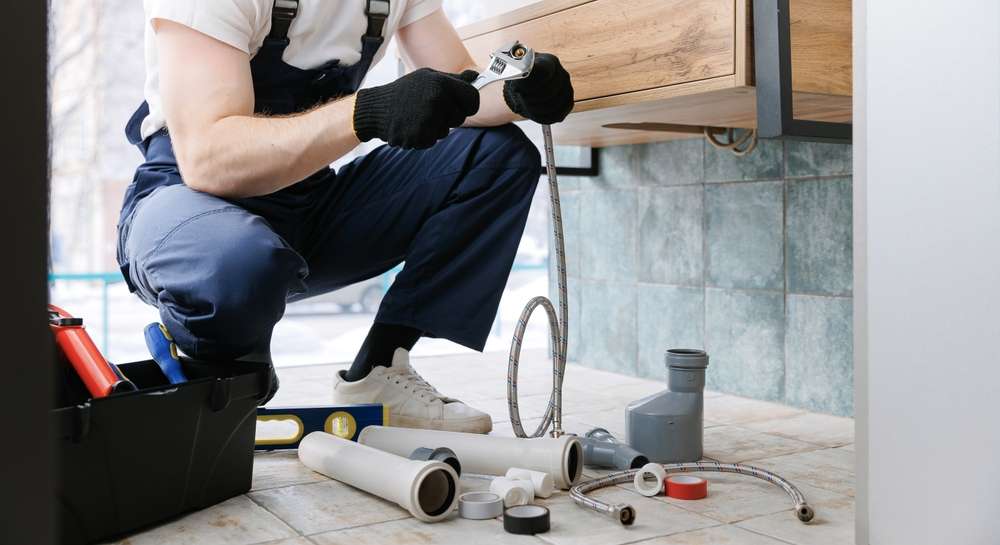Plumbing Professionals in Demand by 2025 – Discover Growth Trends and Earning Potential
The demand for qualified professionals in the plumbing sector continues to rise, making it an appealing choice for those seeking a reliable and rewarding career path. Looking ahead to 2025, plumbing stands out as a trade that offers long-term security, opportunities for advancement, and competitive compensation.

Why is plumbing becoming one of the most reliable trades?
The reliability of plumbing as a trade stems from several factors. Firstly, the need for plumbing services is constant and universal. Every building, whether residential or commercial, requires plumbing systems, and these systems need regular maintenance, repairs, and upgrades. Secondly, the plumbing industry is relatively recession-proof. Even during economic downturns, people still need functioning plumbing systems, ensuring a steady demand for skilled professionals.
Moreover, the increasing focus on sustainable building practices and water conservation has created new opportunities for plumbers specializing in eco-friendly solutions. As technology advances, plumbers with expertise in smart home systems and water-efficient fixtures are becoming increasingly valuable in the job market.
What are the top benefits of working as a professional plumber?
Choosing a career as a professional plumber comes with numerous advantages. One of the most significant benefits is job security. The demand for plumbers is expected to grow steadily, ensuring a stable career path for those entering the field. Additionally, plumbing offers competitive salaries, with experienced professionals often earning above-average incomes.
Another advantage is the opportunity for entrepreneurship. Many plumbers choose to start their own businesses after gaining experience, allowing for greater flexibility and potential for higher earnings. The profession also offers a sense of accomplishment, as plumbers play a crucial role in maintaining public health and safety through their work on water and sanitation systems.
How does the career path from apprenticeship to master plumber unfold?
The journey to becoming a master plumber typically begins with an apprenticeship program. These programs usually last 4-5 years and combine on-the-job training with classroom instruction. During this time, apprentices learn the fundamentals of plumbing, including pipe system design, building codes, and safety regulations.
After completing the apprenticeship, individuals become journeyman plumbers. At this stage, they can work independently on most plumbing projects. With additional experience and education, journeyman plumbers can progress to become master plumbers. Master plumbers have the highest level of expertise and are qualified to design plumbing systems, oversee complex projects, and train apprentices.
What skills are essential for success in the plumbing industry?
Success in the plumbing industry requires a combination of technical skills and personal qualities. Technical skills include knowledge of plumbing systems, ability to read blueprints, and proficiency with various tools and equipment. Problem-solving skills are crucial, as plumbers often encounter unexpected issues that require creative solutions.
Physical fitness is important, as the job can be physically demanding. Good communication skills are also essential, as plumbers interact with clients and work as part of teams on larger projects. Additionally, staying updated with the latest technologies and regulations in the field is vital for long-term success.
How is technology shaping the future of plumbing careers?
Technology is playing an increasingly significant role in the plumbing industry, creating new opportunities and challenges for professionals. The integration of smart home systems has led to the development of advanced plumbing fixtures that can be controlled remotely or programmed for efficiency. Plumbers who are skilled in installing and maintaining these systems are in high demand.
3D modeling and virtual reality are being used for planning complex plumbing systems, requiring plumbers to develop new digital skills. Additionally, the use of trenchless technology for pipe repair and replacement is becoming more common, reducing the need for extensive excavation work and creating a niche for plumbers specialized in these techniques.
What are the salary expectations for plumbers in 2025?
As the demand for skilled plumbers continues to grow, salary expectations for professionals in the field are projected to remain competitive. While exact figures can vary based on location, experience, and specialization, the overall trend indicates positive growth in earnings potential for plumbers.
| Experience Level | Estimated Annual Salary Range (2025) |
|---|---|
| Apprentice | €20,000 - €30,000 |
| Journeyman | €35,000 - €55,000 |
| Master Plumber | €60,000 - €90,000+ |
Prices, rates, or cost estimates mentioned in this article are based on the latest available information but may change over time. Independent research is advised before making financial decisions.
The salary ranges provided are estimates based on current trends and projections. It’s important to note that actual salaries can vary significantly depending on factors such as location, employer, and individual expertise. Specialized plumbers, such as those working in industrial settings or with advanced technologies, may command higher salaries.
In conclusion, the plumbing industry offers a promising career path with strong growth potential leading up to 2025 and beyond. With a combination of job security, competitive salaries, and opportunities for advancement, plumbing stands out as an attractive option for those seeking a reliable and rewarding trade. As technology continues to evolve and environmental concerns shape building practices, the role of plumbers is likely to become even more crucial, ensuring a bright future for professionals in this field.






